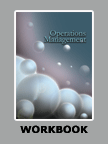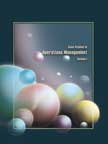Supply Chain Management of PepsiCo
|
ICMR HOME | Case Studies Collection
» Operations Case Studies 
Custom Search
Please note: |
||||||||
ExcerptsSupply Chain Management at Pepsico
Raw materials also included packaging material — plastic resins such as polyethylene terephthalate and polypropylene resin used for plastic beverage bottles, film packaging for snack foods, aluminum for cans, and also fuels and natural gases. Manufacturing OperationsPepsiCo employed many technologies at its production facility when it realized that production flow was not smooth due to the frequent breakdown of machine and mismanaged inventory. Production at PepsiCo plants began with the unloading of empty bottles from the trucks via the conveyor and their being moved to the depalletizer.... Distribution Network And Logistic ManagementPepsiCo used different distribution strategies to bring its products to market depending upon product characteristics, local trade practices, and customers’ needs. It delivered fragile and perishable products which were less likely to be impulse purchases, from its manufacturing plant and warehouses to customer warehouses and retail stores. PepsiCo used third party foodservices and vending distributors to distribute its snacks, foods, and beverage to restaurants, schools, stadiums, businesses, and other locations. Pepsico's Relationship with RetailersPepsiCo also made its supply chain better by establishing a collaborative relationship with its retailers. One such example was its relationship with Wegman’s retail . PepsiCo approached Wegman’s with a proposal for the Frito-Lay line which controlled two fifth of the world market for salty snacks and PepsiCo products... Road AheadAs of 2011, PepsiCo was continuing with its efforts in the direction of having a well managed supply chain and of strengthening its relationship with all its supply chain partners. In January 2011, PepsiCo changed the distribution system of its Gatorade products from warehouse delivery to “Direct to store” at convenience stores through both company-owned independent bottlers in the US and Canada.Exhibits
Exhibit I: PepsiCo Inc.’s Business Units

Custom Search
|
Case Studies Links:-
Case Studies,
Short Case Studies,
Simplified Case Studies.
Other Case Studies:-
Multimedia Case Studies,
Cases in Other Languages.
Business Reports Link:-
Business Reports.
Books:-
Text Books,
Work Books,
Case Study Volumes.







